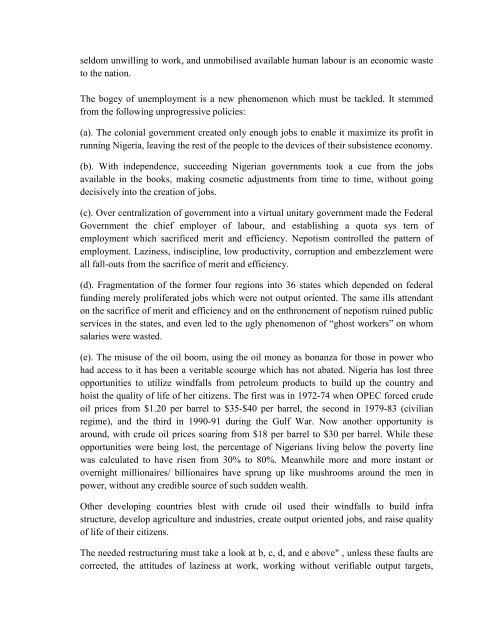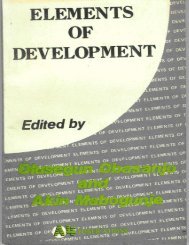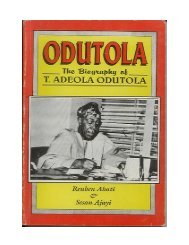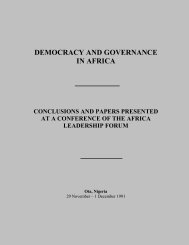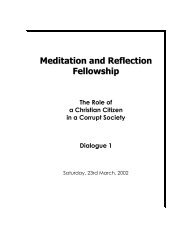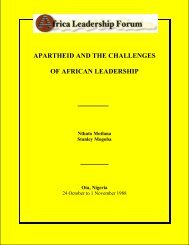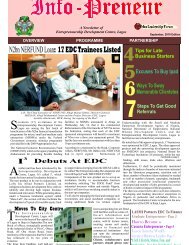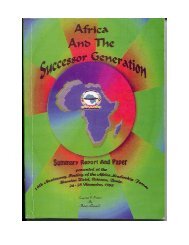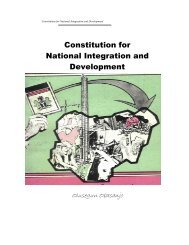Farm House Dialogue - Africa Leadership Forum
Farm House Dialogue - Africa Leadership Forum
Farm House Dialogue - Africa Leadership Forum
Create successful ePaper yourself
Turn your PDF publications into a flip-book with our unique Google optimized e-Paper software.
seldom unwilling to work, and unmobilised available human labour is an economic wasteto the nation.The bogey of unemployment is a new phenomenon which must be tackled. It stemmedfrom the following unprogressive policies:(a). The colonial government created only enough jobs to enable it maximize its profit inrunning Nigeria, leaving the rest of the people to the devices of their subsistence economy.(b). With independence, succeeding Nigerian governments took a cue from the jobsavailable in the books, making cosmetic adjustments from time to time, without goingdecisively into the creation of jobs.(c). Over centralization of government into a virtual unitary government made the FederalGovernment the chief employer of labour, and establishing a quota sys tern ofemployment which sacrificed merit and efficiency. Nepotism controlled the pattern ofemployment. Laziness, indiscipline, low productivity, corruption and embezzlement wereall fall-outs from the sacrifice of merit and efficiency.(d). Fragmentation of the former four regions into 36 states which depended on federalfunding merely proliferated jobs which were not output oriented. The same ills attendanton the sacrifice of merit and efficiency and on the enthronement of nepotism ruined publicservices in the states, and even led to the ugly phenomenon of “ghost workers” on whomsalaries were wasted.(e). The misuse of the oil boom, using the oil money as bonanza for those in power whohad access to it has been a veritable scourge which has not abated. Nigeria has lost threeopportunities to utilize windfalls from petroleum products to build up the country andhoist the quality of life of her citizens. The first was in 1972-74 when OPEC forced crudeoil prices from $1.20 per barrel to $35-$40 per barrel, the second in 1979-83 (civilianregime), and the third in 1990-91 during the Gulf War. Now another opportunity isaround, with crude oil prices soaring from $18 per barrel to $30 per barrel. While theseopportunities were being lost, the percentage of Nigerians living below the poverty linewas calculated to have risen from 30% to 80%. Meanwhile more and more instant orovernight millionaires/ billionaires have sprung up like mushrooms around the men inpower, without any credible source of such sudden wealth.Other developing countries blest with crude oil used their windfalls to build infrastructure, develop agriculture and industries, create output oriented jobs, and raise qualityof life of their citizens.The needed restructuring must take a look at b, c, d, and e above" , unless these faults arecorrected, the attitudes of laziness at work, working without verifiable output targets,


